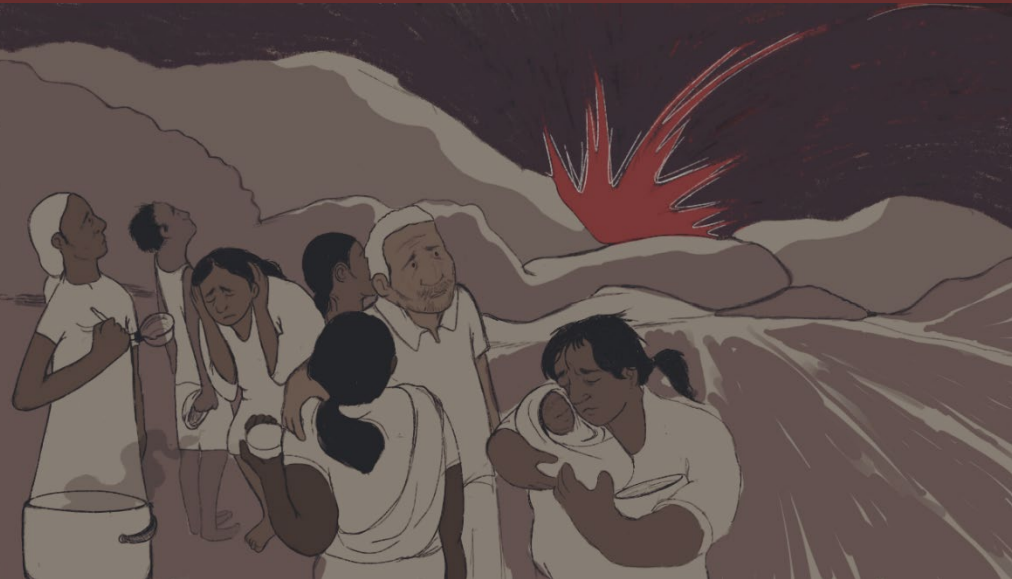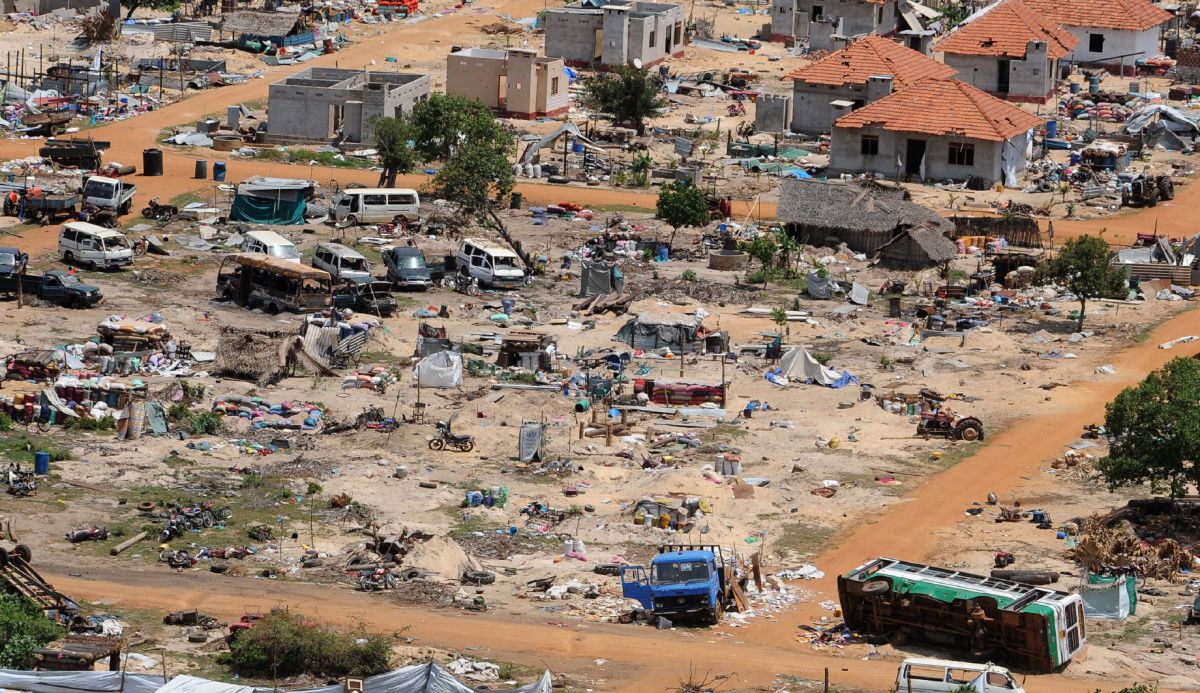
The People for Equality and Relief in Lanka (PEARL) released a new legal briefing paper this week that states out and proves that the Sri Lankan government and military committed genocide against the Tamil people in 2009.
The repor, released to coincide with UN Human Rights Council’s 57th session, comes to the legal conclusion that there was sufficient evidence to prove genocidal intent by the Government of Sri Lanka against the Tamil people from January through May 18, 2009.
“The Sri Lankan government cloaked its horrific atrocities in the language of ‘counter-terrorism’ and paved the way for similar genocidal acts to occur, including in Gaza,” said Madura Rasaratnam, Executive Director of PEARL. “This report urges members of the international community to listen to Tamils, who’ve rightly said ‘genocide’ for over 15 years, and to formally recognize Sri Lanka’s genocide against the Tamil people in 2009.”
The report, “Justice for Genocide: Sri Lanka’s Responsibility for Genocide against the Tamil People in 2009,” undertakes a comprehensive evidentiary and legal analysis of the Sri Lankan government and military’s conduct as genocidal acts that were committed with genocidal intent.
PEARL uses factual evidence gathered from UN investigations, international NGOs, and the media, and then applies genocide jurisprudence, including appropriate circumstantial evidence. Based on these findings, PEARL ascertained that the Sri Lankan government and its forces’ conducted what constitutes at least one of the following three genocidal acts: killing, causing serious bodily or mental harm, and/or deliberately inflicting conditions of life calculated to bring about their partial physical destruction.
According to the investigations, the genocidal acts were committed with the intent to destroy Eelam Tamils in the Vanni region, the last area under the control of the Liberation Tigers of Tamil Eelam (LTTE). PEARL determined Sri Lanka’s intent to destroy based on the deployment of at least 14 times as many soldiers and special forces as LTTE “core fighters” in the Vanni; consistent, methodical conduct against Tamils in the Vanni; and deliberately disproportionate attacks in the Vanni, knowing the vast majority of Tamils were civilians who did not pose a serious military threat.
PEARL also analyzed Sri Lankan officials’ statements conflating and explicitly reframing the civilian population as LTTE combatants in an attempt to conceal the genocide under the guise of the escalating internal armed conflict, counterinsurgency, and the global “war on terror.” Of the alleged perpetrators most responsible, then-Defense Secretary Gotabaya Rajapaksa said that “only LTTE sympathizers” were present in the “No Fire Zone”; “to crush the terrorists, there is nothing called unproportionate”; and the UN should refer to the dead as “people,” not “civilians,” all of which indicate an intent to destroy the Tamils in the Vanni.
Read more: 15 years today - A massacre in Mullivaikkal
As an example, PEARL cited the incidents that transpired during the final months of the war, where the Sri Lankan military deliberately shelled government-designated “No Fire Zones,” killing at least 40,000 Tamil civilians, severely injuring another 25,000 to 30,000 Tamils, and attacking hospitals, food distribution lines, and other humanitarian objects. Soldiers raped and sexually mutilated many Tamil women and girls, and security forces physically and sexually tortured countless Tamil men and women detainees. The government deliberately restricted access to necessary food and medical supplies in the war zone and created inhumane conditions for internally displaced Tamils in de facto internment camps.

The Sri Lankan government has consistently denied the numbers and allegations of war crimes. Reports of over 40,000 Tamil civilians having been killed during the final stages of Sri Lanka’s armed conflict have been labeled as a “myth” the former chairman of Sri Lanka’s presidential commission into disappearances once said.
“Tamils in the Vanni today face not only human rights violations and persecution, but also surveillance, harassment, and intimidation, particularly those bravely demanding justice and accountability for 2009, like the Tamil Families of the Disappeared,” Rasaratnam said. “As long as impunity reigns, facilitating militarization and abuses, Tamils in the Vanni will not have sustainable peace. The state of Sri Lanka and Sri Lankan war criminals and genocidaires must be brought to justice.”
